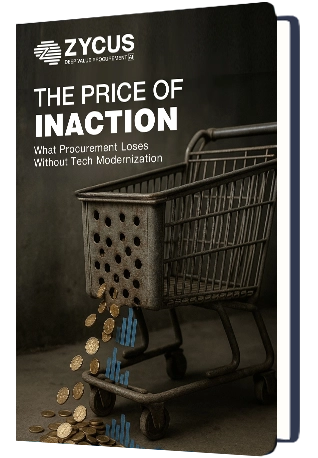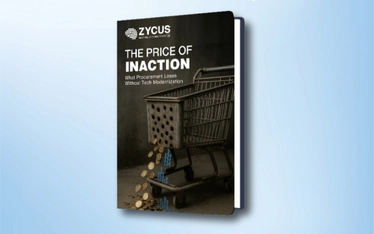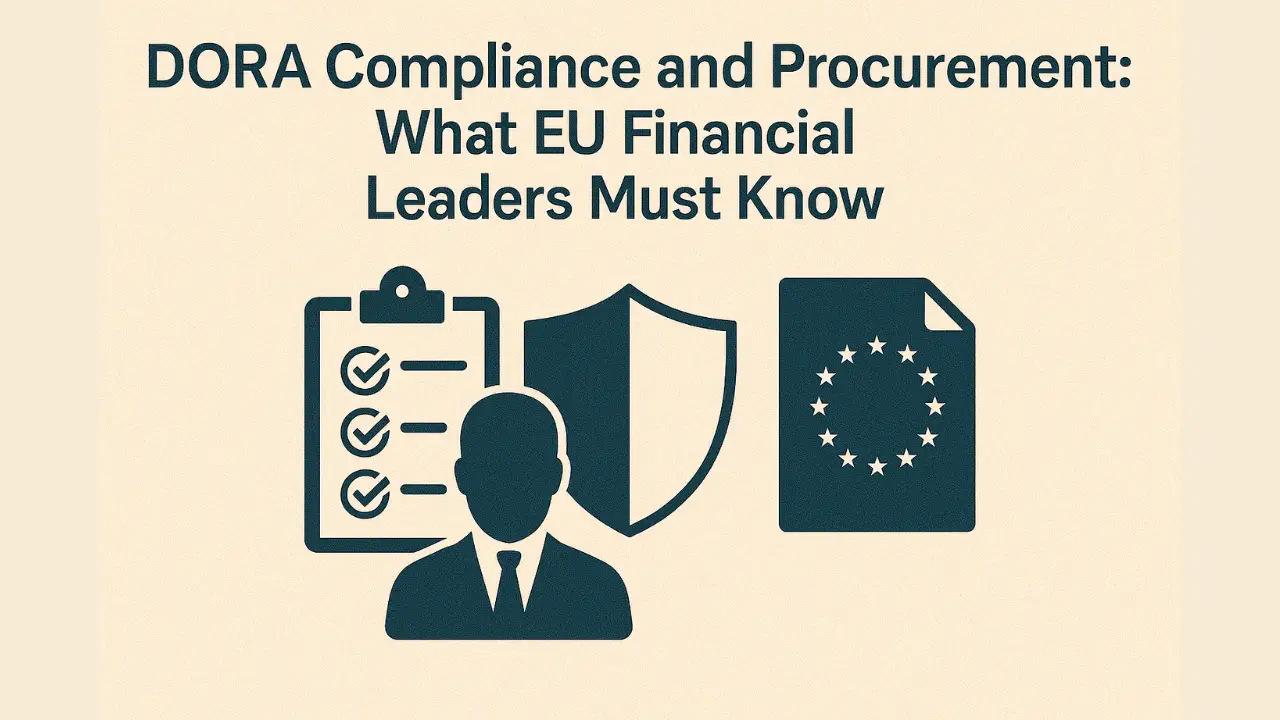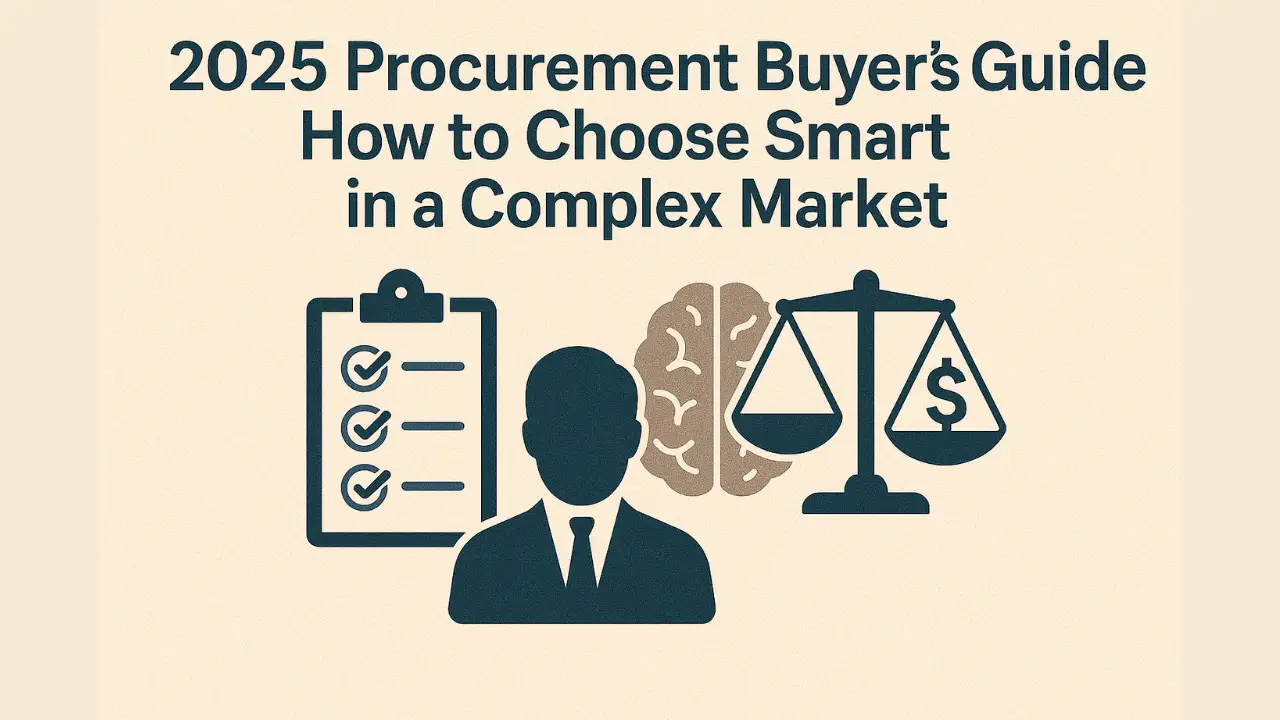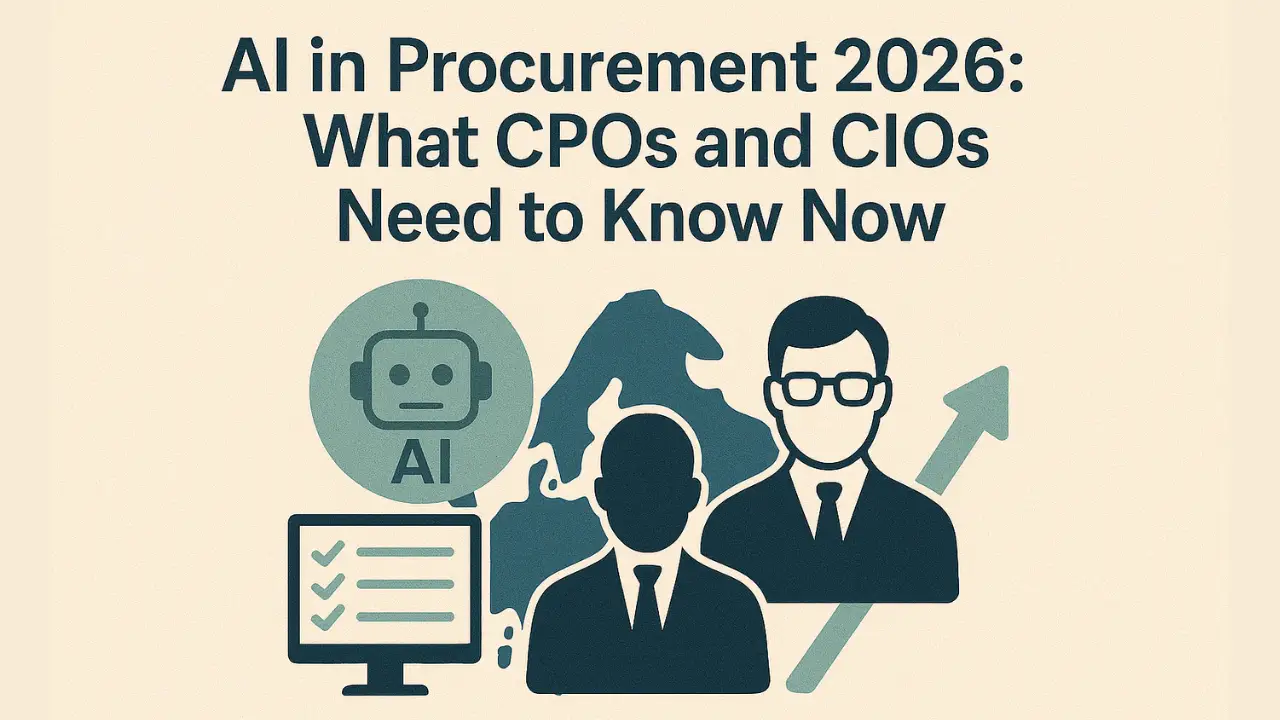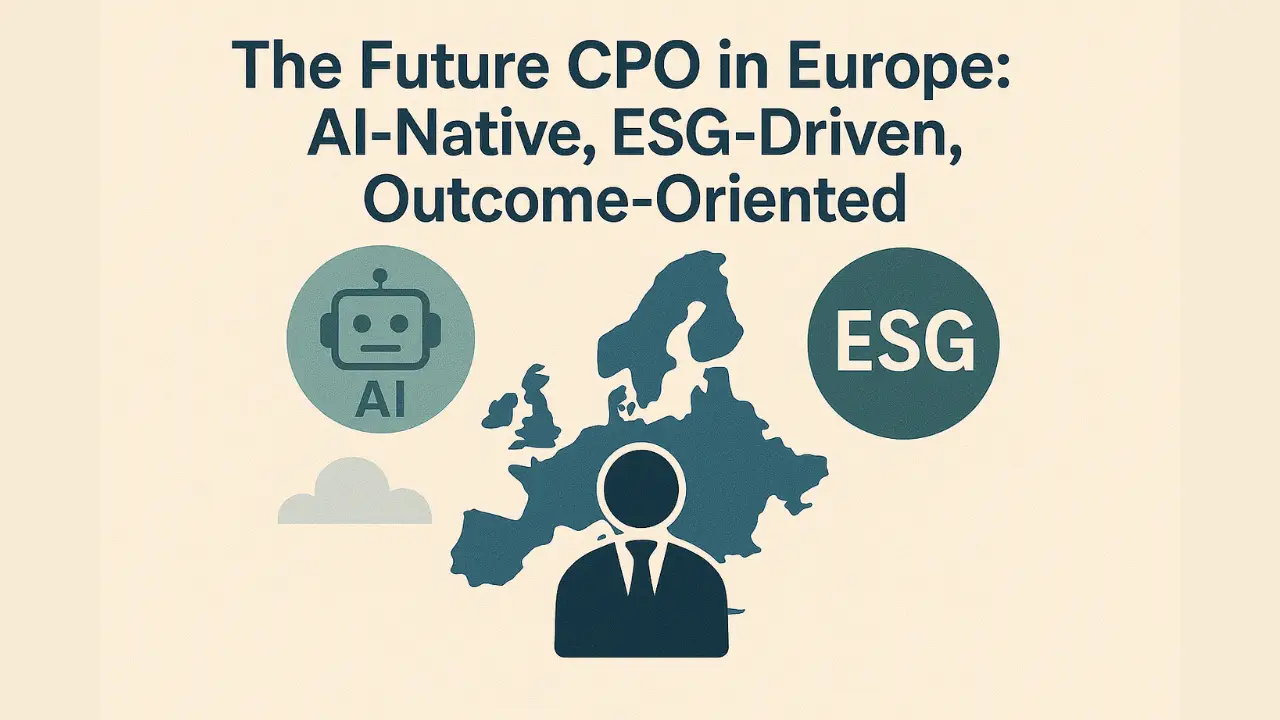Ask any CPO in a mid-sized company, and they’ll tell you that mid-size organization procurement is often one of the most resource-intensive functions. Every day, your team juggles a mountain of tasks—from securing the best suppliers to navigating compliance requirements and ensuring every dollar spent brings measurable value. Yet, as you scale, these demands only grow, and the adherence to manual processes that once got the job done now feels like a constant uphill battle. Sound familiar?
You’re not alone. In fact, 98% of procurement decision-makers are actively planning investments in insights tools, procurement automation, and AI to streamline their operations, according to Amazon Business’s “2024 State of Procurement Report.” Why the rush? These leaders see the need not only to stay competitive but to actively push ahead, making mid-size business procurement leaner, smarter, and more resilient. Automation and AI bring immense promise: the ability to eliminate repetitive tasks, reveal powerful data insights, and make procurement more strategic—leaving teams more time to focus on high-value decisions.
In the following sections, we’ll explore the strategic advantages and benefits of procurement automation in mid-size organizations, showing why now is the time to make this transformation—and why it can be a game-changer.
TL;DR
- Mid-size organization procurement benefits greatly from AI agents that reduce manual workload, streamline tasks, and drive cost efficiency.
- Real-Time Insights Enhance Decision-Making: AI delivers spend analytics, risk alerts, and supplier performance data to inform faster, smarter choices.
- Scalable Infrastructure for Growth: Automation supports business expansion without increasing headcount or IT complexity.
- Boost Employee Experience and Retention: By eliminating tedious tasks and enabling mobile-friendly processes, AI improves job satisfaction.
- Stay Competitive with Predictive Intelligence: Leverage AI to analyze market trends, optimize bulk purchases, and secure better supplier deals.
Download Whitepaper: Enabling The Procurement Function To Assume A Strategic Role Through Automation
Why AI Agents are Key to Procurement Automation
Think of AI agents as that extra set of hands every procurement team wishes they had—only these “hands” come with advanced data skills and never get tired. Imagine explaining this to your team: “So, what if we had assistants that didn’t just handle mundane tasks but actually improved our decision-making? Instead of getting buried in spreadsheets or juggling vendor calls, we’d have AI agents streamlining supplier selection, managing invoices, spotting risks, and giving us a real-time view of spending—all without the headache.” Sounds like a dream, right?
These AI agents aren’t just automating tasks—they’re stepping in with data insights, risk analysis, and proactive recommendations. For mid-sized companies, adding AI means faster processes and the ability to compete at a larger scale. Here’s how these AI agents deliver strategic benefits that make mid-size organization procurement feel a whole lot easier:
1. Cost Control
AI agents excel at reducing operational costs by automating routine tasks that would otherwise require an additional workforce. By automating processes like purchase order creation, vendor validation, and invoice checks, these tools allow existing teams to focus on strategic tasks instead of routine admin work. AI agents also minimize costly errors in purchasing and invoicing, enabling data-driven supplier selection for better deals.
AI Agent Feature: Automated Scoring for Proposals
This feature helps in quickly and consistently scoring supplier proposals, ensuring the best suppliers are chosen without manual intervention. By eliminating bias and reducing human error, AI agents streamline cost-saving decisions, driving better financial outcomes for mid-sized organizations.
2. Speed Without Sacrificing Compliance
With AI agents, mid-sized companies can speed up procurement processes without bypassing necessary compliance controls. Automated workflows mean purchase requests can be routed instantly for approval based on set criteria, while compliance checks are performed in the background. The result is faster procurement cycles without sacrificing auditability or standardization.
AI Agent Feature: Automated Workflow and Compliance Monitoring
This feature not only routes purchase orders efficiently but also ensures each transaction adheres to compliance standards. By tracking compliance requirements automatically, AI agents maintain an audit trail and allow teams to move quickly while ensuring regulatory standards are met.
3. Growth-Ready Infrastructure
AI agents provide mid-size business procurement with a scalable infrastructure, capable of handling increasing transaction volumes without proportional cost increases. These agents integrate seamlessly with existing systems, enabling growth without a significant overhaul of current tools. AI agents also help future-proof the procurement process, readying companies for new technologies and scaling needs.
AI Agent Feature: Smart Supplier Recommendation
This feature assists in identifying alternative suppliers based on parameters such as cost, geography, and payment terms. With AI-driven recommendations, procurement teams can quickly adapt to growth demands, finding suppliers that fit evolving business needs without manual research.
4. Real-Time Visibility for Better Decisions
One of the most valuable benefits of procurement automation in mid-size organizations is the ability of AI agents to provide real-time visibility across all procurement activities. By analyzing data on spending, contract terms, and supplier performance, AI agents deliver insights that allow for proactive decision-making. This “early warning” system can highlight potential budget overruns or identify spending patterns across departments.
AI Agent Feature: Proactive Risk Identification
AI-powered risk detection helps companies manage supplier risks early on. By monitoring supplier data and performance trends, this feature flags potential issues, allowing procurement teams to intervene before they escalate, ensuring decisions are always informed by up-to-date data.
5. Employee Experience & Retention
Procurement teams often feel weighed down by paperwork and tedious tasks. AI agents alleviate this burden by automating time-consuming processes, making work faster and more engaging. With features like mobile-friendly requisitions and approvals, procurement teams can complete tasks on the go, creating a more flexible and satisfying work environment.
AI Agent Feature: Automated Supplier Response Summarization
This feature provides quick, standardized summaries of supplier responses, allowing procurement staff to analyze information swiftly without combing through lengthy documents. The result is less time on manual data checks and more time focused on strategic, relationship-building tasks, which can improve job satisfaction and retention.
6. Competitive Advantage Through Data Intelligence
AI agents enable companies to analyze market trends, recognize spending patterns, and spot opportunities for better supplier contracts. Predictive analytics powered by AI helps companies time bulk purchases to optimize pricing and stay ahead of competitors.
AI Agent Feature: Predictive Analytics and Market Trend Analysis
This feature allows companies to analyze past data and forecast market trends, informing decisions like bulk purchases at the most opportune times. With these insights, mid-sized companies can make procurement a competitive advantage, securing favorable deals and avoiding market fluctuations.
Press Release: Sensus Embarks on Procurement Automation with Zycus
Conclusion: Mid-Size Organization Procurement Automation
For mid-sized companies, procurement automation isn’t just about speeding up workflows or trimming a few costs—it’s a strategic shift that prepares the organization for growth, resilience, and long-term success. By bringing AI-powered agents into the mix, procurement teams gain the tools they need to handle more complex demands without adding extra headcount, make faster, more accurate decisions, and drive real cost savings that impact the bottom line.
As more organizations jump on board, the message is clear: automated procurement isn’t just the future—it’s the present. If you’re ready to shift from time-consuming tasks to data-driven decisions and proactive strategies, Schedule a demo today to consider AI-powered procurement automation.
FAQs
Q1. What is procurement automation for mid-size organizations?
Procurement automation involves using AI and digital tools to streamline manual procurement processes—such as supplier selection, purchase order creation, and invoice management. For mid-size organizations, it reduces manual workload, increases accuracy, and enables faster, more strategic decision-making without expanding headcount.
Q2. How do AI agents improve procurement processes in mid-sized companies?
AI agents act as intelligent digital assistants that automate repetitive procurement tasks, analyze data for better insights, and offer recommendations. They help with supplier scoring, workflow automation, risk identification, and predictive analytics—saving time, cutting costs, and improving overall efficiency.
Q3. What are the key benefits of using AI agents in procurement?
- Cost control through process automation and error reduction
- Faster procurement cycles with built-in compliance checks
- Real-time visibility into spending and supplier performance
- Scalable infrastructure to support business growth
- Improved employee experience through automation of tedious tasks
- Competitive advantage from predictive analytics and market insights
Q4. How do AI agents help control costs in procurement?
AI agents automate routine processes like purchase orders, proposal scoring, and vendor validation—reducing human error and saving time. They also identify cost-saving opportunities by comparing supplier data and optimizing purchasing decisions.
Q5. Can AI automation maintain compliance while improving speed?
Yes. AI-powered workflows automatically enforce compliance policies during approval and purchasing processes. They track every transaction for audit purposes, ensuring regulatory standards are met without slowing down procurement cycles.
Q6. How does procurement automation support business scalability?
AI agents enable mid-size organizations to handle larger transaction volumes without adding more staff or IT systems. They integrate with existing tools and adapt to business growth, providing a scalable, future-ready procurement infrastructure.
Q7. What role does data visibility play in AI-driven procurement?
Real-time visibility gives procurement leaders instant access to spending patterns, supplier performance, and contract data. AI agents analyze this information to detect risks, identify inefficiencies, and recommend proactive actions for smarter decision-making.
Q8. How does AI improve employee experience in procurement teams?
By automating repetitive and manual tasks, AI allows procurement professionals to focus on strategy and relationship-building. Features like mobile-friendly approvals and automated supplier summaries improve flexibility, job satisfaction, and retention.
Q9. How do AI agents provide a competitive advantage for mid-size organizations?
Through predictive analytics, AI agents can analyze market trends and forecast pricing shifts. This allows companies to make informed bulk purchases, negotiate better supplier contracts, and stay ahead of competitors in a dynamic market.
Q10. What are some examples of AI features in procurement automation?
Key AI agent features include:
- Automated supplier scoring and proposal evaluation
- Workflow automation and compliance monitoring
- Smart supplier recommendations
- Proactive risk identification
- Automated response summarization
- Predictive analytics for market trend analysis
Q11. What challenges can mid-size companies face when adopting procurement automation?
Common challenges include data integration issues, limited AI expertise, and resistance to change. These can be mitigated with proper team training, a phased rollout, and clear alignment between business goals and automation strategy.
Q12. How can mid-sized businesses get started with procurement automation?
Start by assessing current procurement workflows, identifying repetitive tasks suitable for automation, and ensuring data quality. Then, select an AI-powered procurement platform—like Zycus—that integrates with existing systems and provides guided implementation support.
Q13. How does Zycus help mid-sized organizations with procurement automation?
Zycus provides a suite of AI-driven solutions designed for mid-sized businesses. Its AI agents automate tasks such as sourcing, supplier management, and invoice processing—delivering cost savings, compliance, and real-time insights that drive strategic growth.
Related Read:
- Understanding Blockchain in Procurement and Its Impact
- Change Management in Procurement and How to Handle It
- Procurement vs Purchasing– Understanding the Difference
- Whitepaper: Enabling The Procurement Function To Assume A Strategic Role Through Automation
- How an Integrated Procurement System Can Help Your Organization
- Procurement Best Practices– Top 10 Tips to Follow in 2023
- Video: Unveiling the Future of Procurement with AI-powered Source-to-Pay Solutions
- Top 10 Winning Skills for Procurement Professionals
- What are Direct and Indirect Procurement
- Procure to Pay Software
- Solution: Procurement Workflow Management Software
- Solution: eProcurement Software
- Solution: Accounts Payable Automation Software


















































